Application Scenarios
Make combustion cleaner, more efficient and safer
PTMS boiler inspection service case of Changshu Power Plant
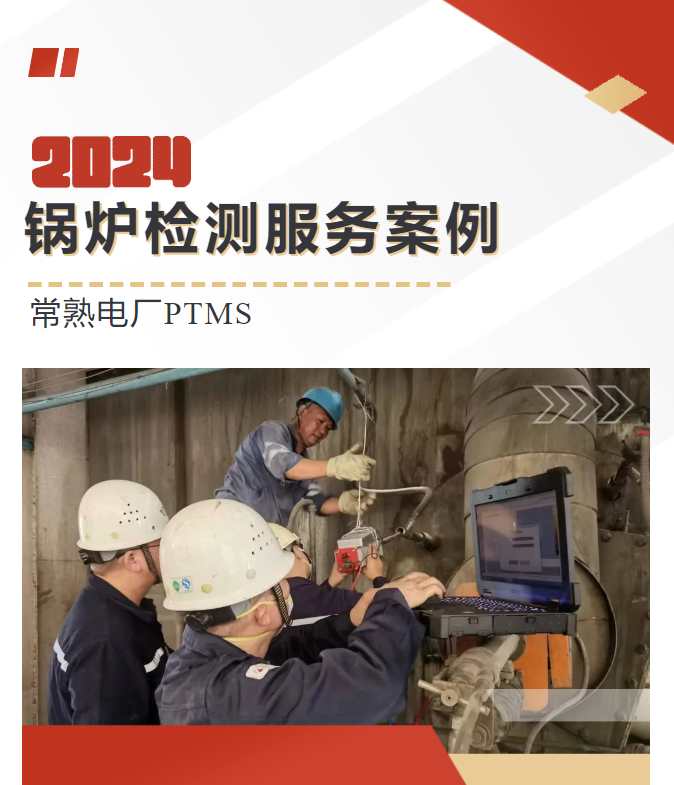
Background / Introduction
Safefire is entrusted by China Resources Power (Changshu) Co., Ltd. to undertake the flame temperature field measurement and combustion adjustment services of pulverized coal burners. The core essence of the project is to optimize the combustion process and promote a significant improvement in combustion efficiency through accurate measurement and in-depth analysis of the flame temperature distribution of the pulverized coal burner in the furnace.
Project testing will be conducted at three different operating loads (350MW, 470MW and 610MW) to ensure comprehensive combustion performance data is obtained.
Test object / object
Unit number: 2#
Unit capacity: 650MW
Manufacturer: Harbin boiler plant
Unit type: front and rear wall hedge combustion
Number of burners: 32
Burner type: swirl burner
Burner No.:
Front wall A5-A8, B5-B8, C5-C8, D5-D8
Back wall A1-A4, B1-B4, C1-C4, D1-D4
Test equipment and methods Project progress report
The test equipment used in this service is the Tempvision 1100 portable bichromatic spectral temperature measurement device developed and produced by Safefire for the measurement of the flame temperature field of coal-fired boilers.
The equipment uses two-color spectroscopy to measure temperature, which has the characteristics of high precision and strong anti-fly ash ability, and at the same time, because of its unique optical acquisition structure, the equipment can collect flame temperature signals through the on-site fire detection catheter, which is easy to operate.
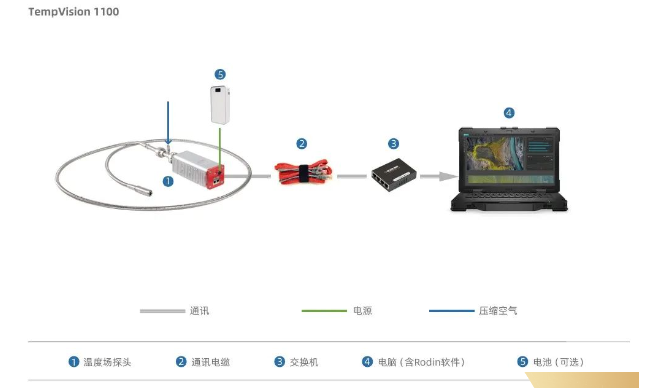
The specific operation is to first remove the flame detector and its inner conduit on each burner, and then extend the temperature probe into the outer conduit of the fire detector for temperature data collection.
To ensure the accuracy of the data, 32 burners will be measured sequentially. The duration of each burner test is 3 minutes, and the burner is tested in no particular order during the test process because the load of the unit remains stable and the start-stop or switching of the coal mill and burner is avoided to affect the test results.
After testing and data analysis, it was found
(1) According to the average temperature analysis of the same layer, the temperature in the furnace generally shows an upward trend along the height direction. The temperature in the furnace rises rapidly from layer A to layer B, and the temperature rise from layer C to layer D slows down.
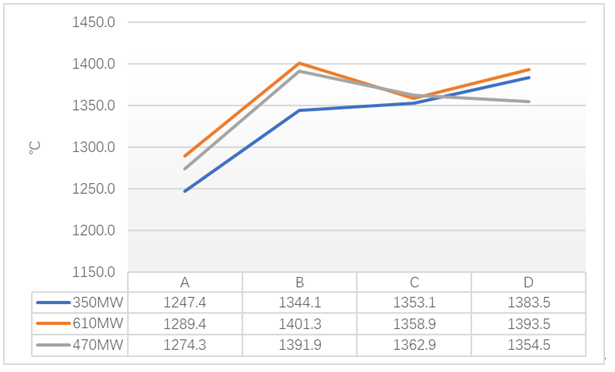
(2) From the perspective of temperature deviation, the maximum deviation of the same layer temperature is 243 °C, and the maximum deviation of the interlayer temperature is 274 °C.
Histogram analysis of temperature in the same layer
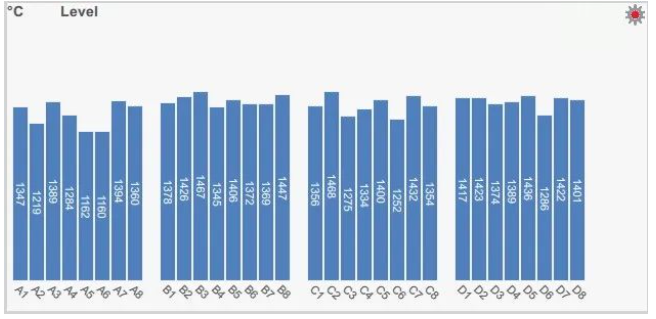
Interlayer temperature histogram analysis

Radar chart analysis

(3) From the perspective of combustion stability: 8 out of 32 burners have the problem of poor combustion stability.
7.1.5 Combustion stability analysis
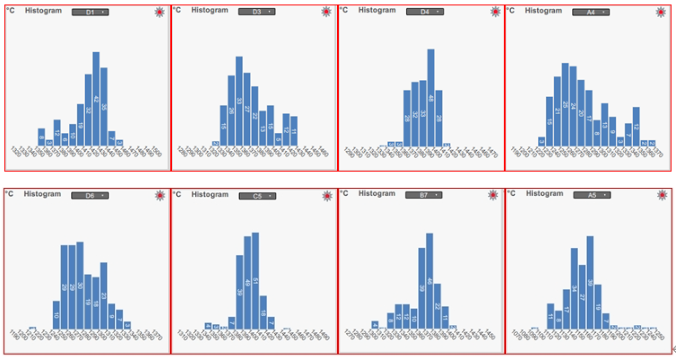
Unstable burner histogram
Burner temperature curve vs. temperature field image
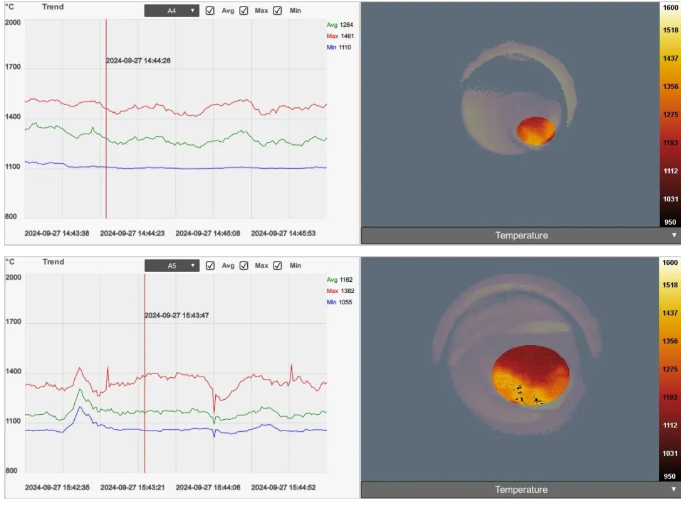
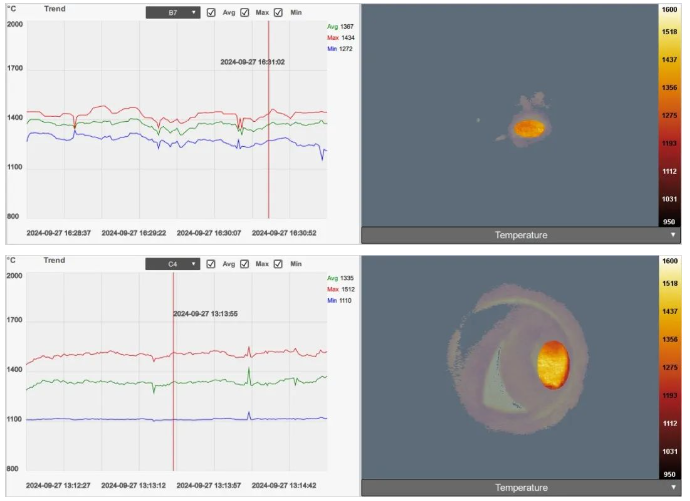
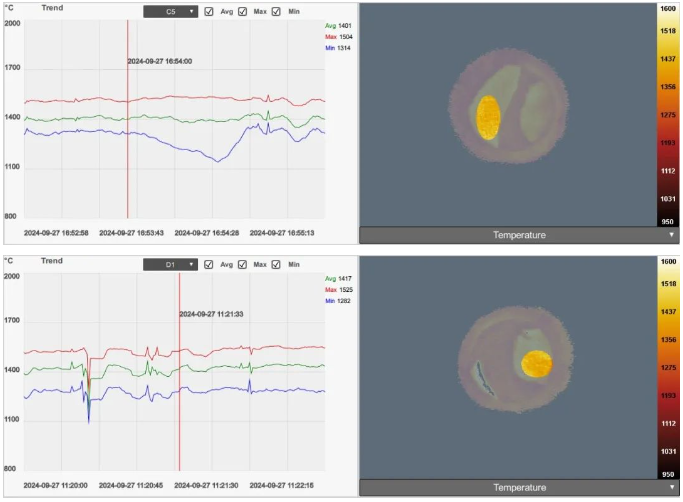
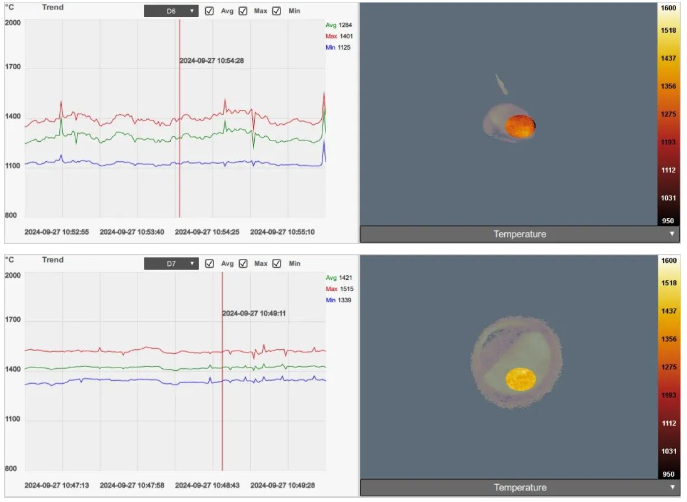
Summarize / Summarize
Here are two suggestions
(1) During maintenance, the fire inspection conduit should be inspected and the coke obstruction in front of the observation port should be cleaned up.
(2) Inspect and adjust the combustion of the above-mentioned abnormal burners.
Safefire has been focusing on the field of safe combustion for many years, providing protection for the safe and stable operation of boilers, and also paying great attention to energy conservation and emission reduction. In the future, we will continue to devote ourselves to a cleaner combustion and coexist with the mountains and rivers!




